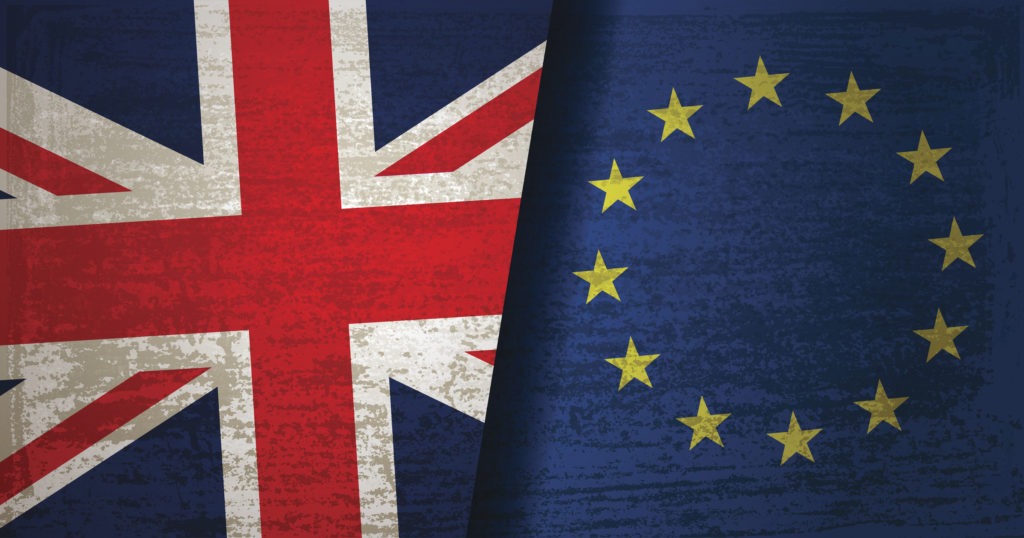SMMT warns of servicing price rise due to Brexit
31 July 2017

31 July 2017
British motorists could see their annual service and repair costs rise by 10% due to Brexit, if no deal is reached between the UK and EU over tariffs and other barriers to trade.
The Society of Motor Manufacturers and Traders (SMMT) has released a report, The Importance of the Aftermarket to the UK Economy 2017, which reveals that a 2.5-4.5% World Trade Organisation (WTO) tariff on imported car parts would cost the average car owner an extra £21 (€23.50) a year for replacement components. Meanwhile, quotas, subsidies, customs delays and regulatory barriers could add an additional £49 (€55), resulting in a £2.14 billion (€2.4 billion) rise in the UK’s collective car maintenance bill and a yearly average of £777 (€869).
Around 80% of replacement vehicle parts fitted to cars in the UK are imported, with almost three quarters of these coming from European suppliers. However, the manufacture of components in the UK is growing, making the risk of tariffs on British products sold in Europe and other key global markets another major concern. The report concludes that WTO tariffs on automotive parts exported from the UK could cost the domestic industry up to £3 billion (€3.4 billion) in lost revenue, with a potential impact on future investment and jobs.
The SMMT believes these figures highlight the importance of the UK securing the right trading relationship with the EU. The UK and EU automotive sectors are highly integrated and any new relationship will need to address tariff and non-tariff barriers, regulatory and labour issues, all of which will take time to negotiate. Therefore, the society is calling on the Government to seek an interim arrangement to avoid a ′cliff-edge’ if a trade deal has not been finalised at the end of the negotiation process. Such an arrangement should maintain membership of the single market and customs union until a final agreement on a new relationship with the EU is negotiated and implemented.
Mike Hawes, SMMT chief executive, comments: ′This report shows just how vital the UK automotive aftermarket is to our economy and society, supporting hundreds of thousands of jobs and keeping vehicles safe – and the country moving. Our car maintenance sector is one of Europe’s most competitive, and motorists enjoy a great choice over where they have their cars serviced. However, if we don’t secure a new trading relationship with the EU that is free of tariffs and customs checks, British consumers could face significant increases to their annual car repair bill due to new tariffs and other trade barriers.’
The report highlights the risk to an industry, which makes a significant contribution to the UK economy. In 2016 the UK automotive aftermarket sector, which includes parts makers, distributors, retailers and workshops, grew its turnover by 2.4% to £21.6 billion (€24.1 billion), while raising its contribution to the economy by 2.5% to £12.5 billion and creating an additional 1,400 extra jobs. The total number of jobs supported by the sector now stands at some 347,000.
In 2016, UK motorists increased their spending on car maintenance by 1.7% to an average of £707 (€791). This was due, in part, to the replacement of more high tech components, which require new skills and equipment to fit. While tyres, lubricants and filters are still the most commonly replaced items, research shows that demand is rising fastest for telematics devices and tyre pressure monitoring sensors.
As the number and age of vehicles on UK roads increases, thanks to a strong new car market, ever-improving reliability and more advanced servicing techniques, by 2022, the UK automotive aftermarket is projected to be worth some £28 billion (€31.3 billion), with an employee base of 400,000.
Vehicle manufacturer Honda has already warned that the impact of no trade deal on Brexit may push up the cost of parts coming into the UK, while investment in the country’s automotive industry has fallen to just £322 million (€392 million) in the first half of 2017, in a sign that companies are delaying or cancelling spending ahead of the UK leaving the European Union.″¯″¯